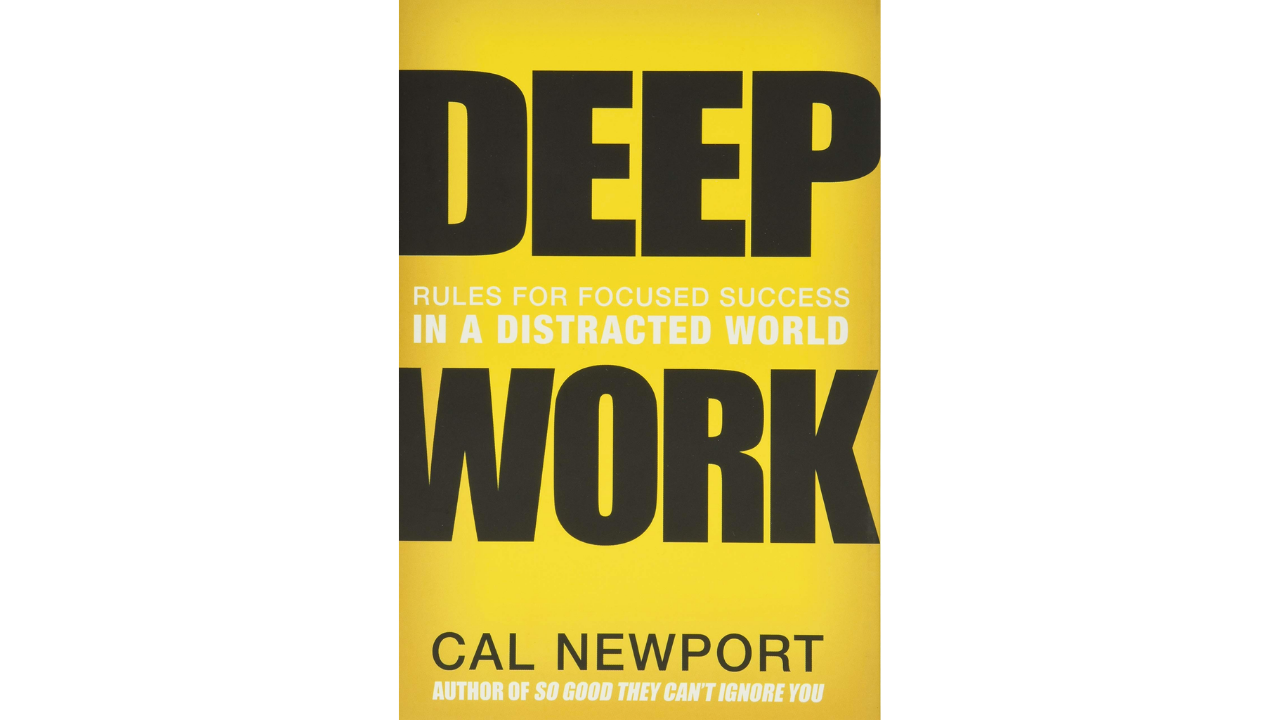Deep Work: Rules for Focused Success in a Distracted World by Cal Newport (Book Summary)
Jul 08, 2022
I’ve written about my struggles with focus and distraction in several posts: see Wherever you go, there you are and Becoming a Digital Minimalist. My journey to repair my fragmented attention started with the book Deep Work by Cal Newport. Below I’ll share some key concepts and practical takeaways that have helped me.
Deep work: Distraction-free concentration that stretches your cognitive capabilities to their limit. Deep work creates new value, improves your skill, and produces work that is hard to replicate.
The ability to perform deep work is becoming increasingly rare and valuable, and it is essential to mastering hard things and producing at an elite level.
I’ve already discussed in detail here why distractions, especially digital distractions are detrimental to our focus:
- Digital devices leverage our dopamine-driven desire for social validation and intermittent reward to create habitual, addictive use
- Excessive use of digital devices costs us time, attention, memory, productivity, energy, relationships, and happiness— this creates a constant, low-grade level of stress which can contribute to burnout
- Digital devices rob us of our boredom and solitude, and the creativity and problem solving that comes with constructive mind-wandering
Every time we shift our attention from one thing to another (multitasking or task-switching), research shows the brain has to engage a neurochemical switch that uses up nutrients and we lose about 20% of our cognitive capacity.
“When you switch from some Task A to another Task B, your attention doesn’t immediately follow—a residue of your attention remains stuck thinking about the original task.” This is called attention residue. Research shows that it takes about 25 minutes to refocus our attention. Distractions inhibit deep work.
Newport teaches us to “The Four Rules of Deep Work”
Rule #1: Work Deeply- Systematically install new routines and rituals to create new habits that will lead to more and more deep work (time blocking, shutdown complete, etc.)
Rule #2: Embrace Boredom- Boredom is like training for deep work. You need to retrain your brain to overcome the desire for distraction.
Rule #3: Quit Social Media- Social media is the junk food of technology; it reduces your ability to concentrate and work deeply. Replace social media with higher quality social connections and leisure.
Rule #4: Drain the Shallows- Essentially time-blocking. Break your day into 30-minute blocks and assign tasks to each block, ranging from work to lunch to rest.
Rules 2-4 are described in depth here. Let’s expand on Rule #1 below:
Schedule deep work blocks
Commit to scheduling deep work blocks into your calendar and sticking to them. Decide where and how you’ll perform deep work. Utilize the power of time-blocking to eliminate distractions and ensure that you will get time for everything you’ve blocked for. For every hour of your workday, assign 30 min block to activities, and list out the full set of small tasks you plan to accomplish in that block.
Execute like a business: The Four Disciplines of Execution
- Focus on the Wildly Important: identify a small number of ambitious outcomes to pursue with your deep work hours, see this post on Essentialism for more
- Keep track and use accountability to motivate yourself, experiment, and course-correct
Implement a shutdown ritual
At the end of the workday, shut down work to aid insights and recharge the energy needed to work deeply. Review goals and create a plan to resolve anything undone. Deep work requires deep rest. Use this time rediscovering boredom, solitude, leisure, hobbies, and play (this will also strengthen your ability to disconnect from distractions and social media).
I’m still working on finding my flow with deep work. Here is what has been working for me;
- Writing down my most essential goal the night before
- Avoiding any external inputs (texts, emails) before this #1 thing is done- this is the hardest!
- While I’m working, keeping a distraction sticky note by me so I can jot down random tasks I remember
- Working in only 60-90 minute ultradian rhythms and forcing myself to take a non-input break for 20 minutes (cooking, cleaning, walking, working out, meditation)
- Keeping my phone in another room and using an app like SelfControl to block me from distracting websites
- Giving myself one day a week of complete rest without any email, productive work, or mindless scrolling
- Revisiting my goals and tasks at the beginning of each week so I can refocus on the essentials
If you enjoyed this post and want to read more about optimizing well-being, check out some of my other posts!






